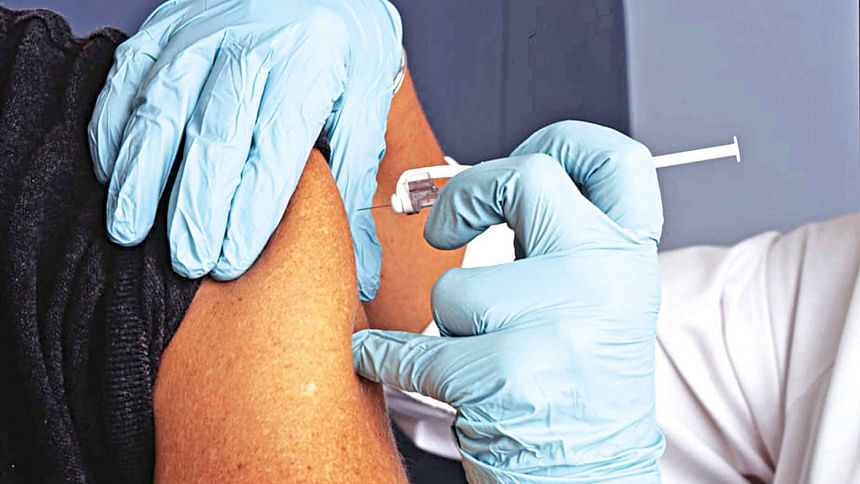The do’s and don’ts after getting the Covid-19 vaccine

Once you receive the Covid-19 vaccine, are you free not to wear your masks and follow hygiene guidelines? Or what should you do to boost the effectiveness of the vaccine shot? In case you or any of your family members has got the vaccine or is ready to get one, here are 6 dos and don'ts after taking the shot of the Covid-19 vaccine.
Do's after getting the Covid-19 vaccine
Do contact a doctor if adverse effects from the vaccine can be seen
Sometimes some mild side effects from the Covid-19 vaccine may be observed. Be careful to notice these symptoms in the first 72 hours after vaccination is administrated. Some of the symptoms that you have been affected adversely are- mild fever and chills, nausea, vomiting, muscle pain around the injected area, headache and achiness. For mild fever, chills, headache or body ache, general pain and fever-reducing medication can come in handy. However, it is better to consult a doctor if possible. But if the symptoms last for more than 72 hours or you have more severe reactions due to the vaccination, you must contact a doctor as soon as possible. However, severe reactions from the Covid-19 vaccination are rare.
Do eat well to boost your immunity
Vaccines do not start working against the virus right away. And for powering up the immune system to fight off infection, one needs to intake nutritious and well-cooked foods that have lots of vitamins, antioxidants and minerals. For example, consuming seasonal vegetables, fruits, eggs or other poultry products, nuts, etc. can help deliver the right immune response after the vaccination and support vital functions of your body. Given that elderly people are mainly getting vaccinated and malnutrition is common among these people, raising nutrients is an important step to take to boost the effectiveness of the Covid-19 vaccine.
Do get the second shot of the Covid-19 vaccine too ever after the first shot
To generate good protection against the virus, the second shot of this vaccine within the recommended time frame is much needed. A single dose may not respond properly to fight off the infection in some cases, but a second dose can increase enough efficacy and immunogenicity. In Bangladesh, the government has decided to administrate the second dose eight weeks after the first jab in light of WHO suggestion. Always stay informed about the new updates regarding the doses of the Covid-19 vaccine and further recommended ways to be safe.
Don'ts after getting the Covid-19 vaccine
Do not leave the hospital immediately after being vaccinated
As mentioned earlier, adverse effects due to the Covid-19 shot can be seen in some cases. Sometimes side effects show up promptly just after the vaccination. This is why it is recommended to wait for at least 15 minutes in the hospital after being injected with the vaccine. Even if any major symptom does not show up, temporary weakness is common when someone gets vaccinated. Hence, it is recommended to wait a bit and do not leave the hospital alone or do not drive yourself.
Do not ditch your masks yet
Though vaccination provides a certain degree of protection against the Covid-19, it doesn't guarantee a complete defence against its infection. Vaccination doses offer some level of protection after 14-28 days and it will take time to ensure vaccination for everyone or mass immunization. In such a situation, we don't know if you or someone around you is a carrier of this virus or not. So for safety purposes, you are still bound to wear masks in public places to keep yourself as well as others from the Covid-19.
Do not forget to follow social distancing and basic hygiene guidelines
Following six-feet distance in public places is proven as one of the effective ways to control the spreading of the Covid-19. Even after getting vaccinated against the Covid-19, you don't get the pass to roam around in crowded areas or to meet people in large numbers without any protection. The thing is that it may help prevent the spread of the virus in the body of someone who gets the vaccination, but it cannot cut down the risk of transmission as well. Hence, follow social distancing along with other basic hygiene guidelines to slow the spread.

 For all latest news, follow The Daily Star's Google News channel.
For all latest news, follow The Daily Star's Google News channel. 



Comments